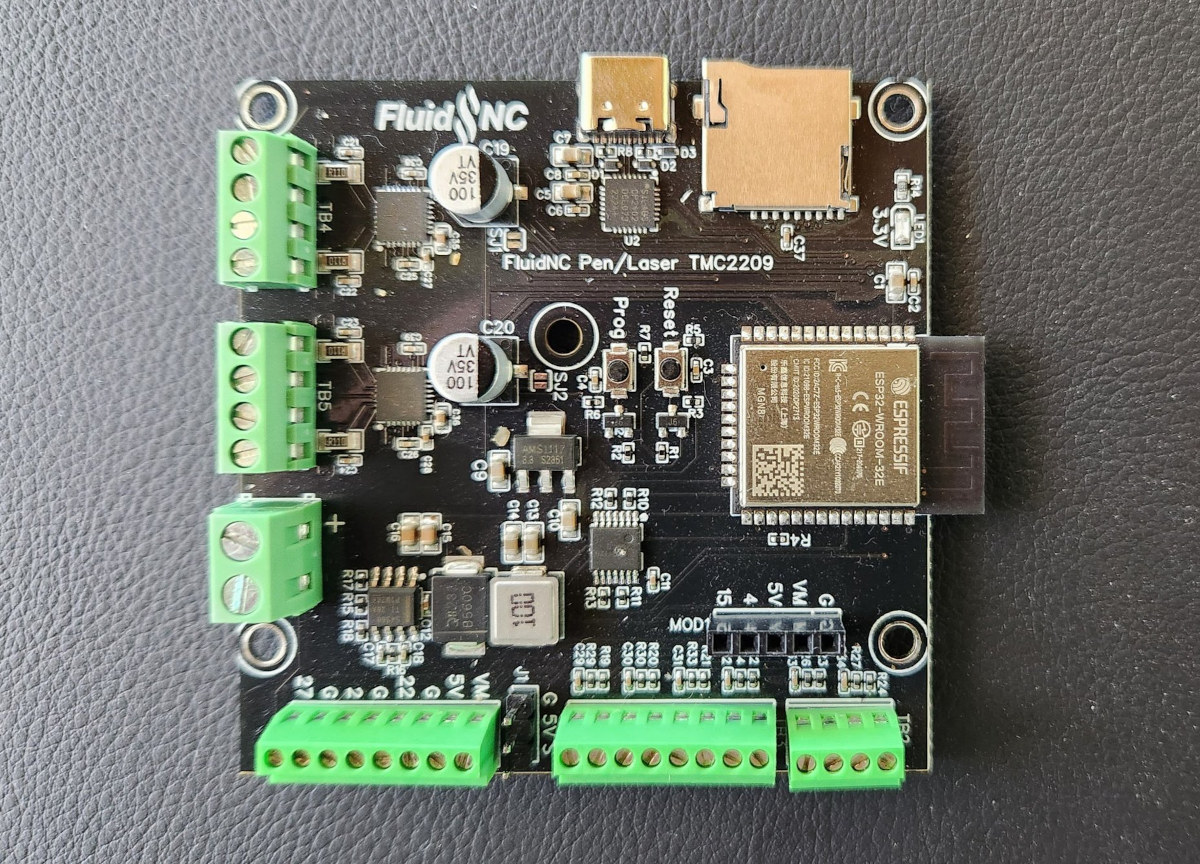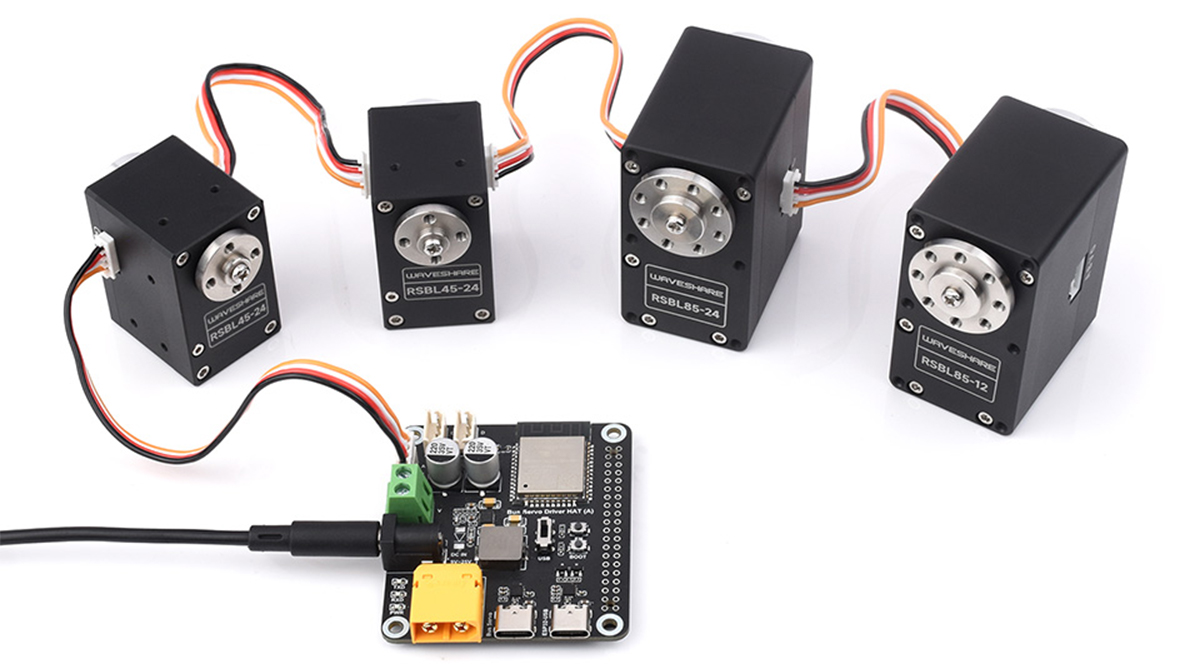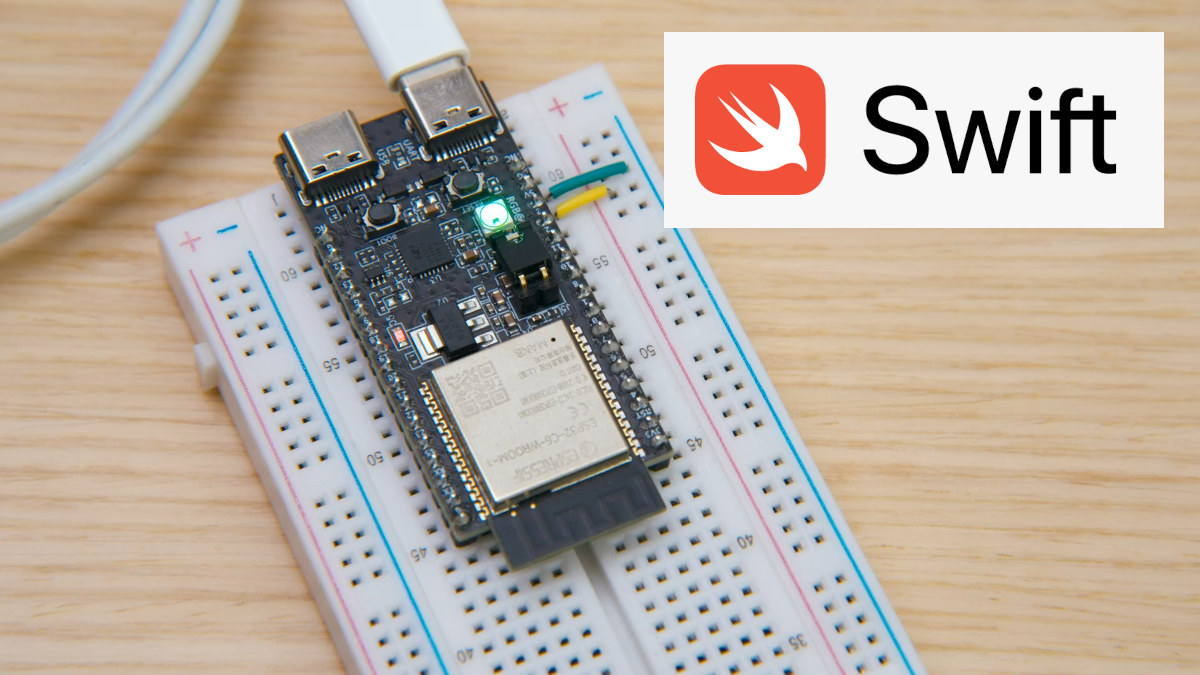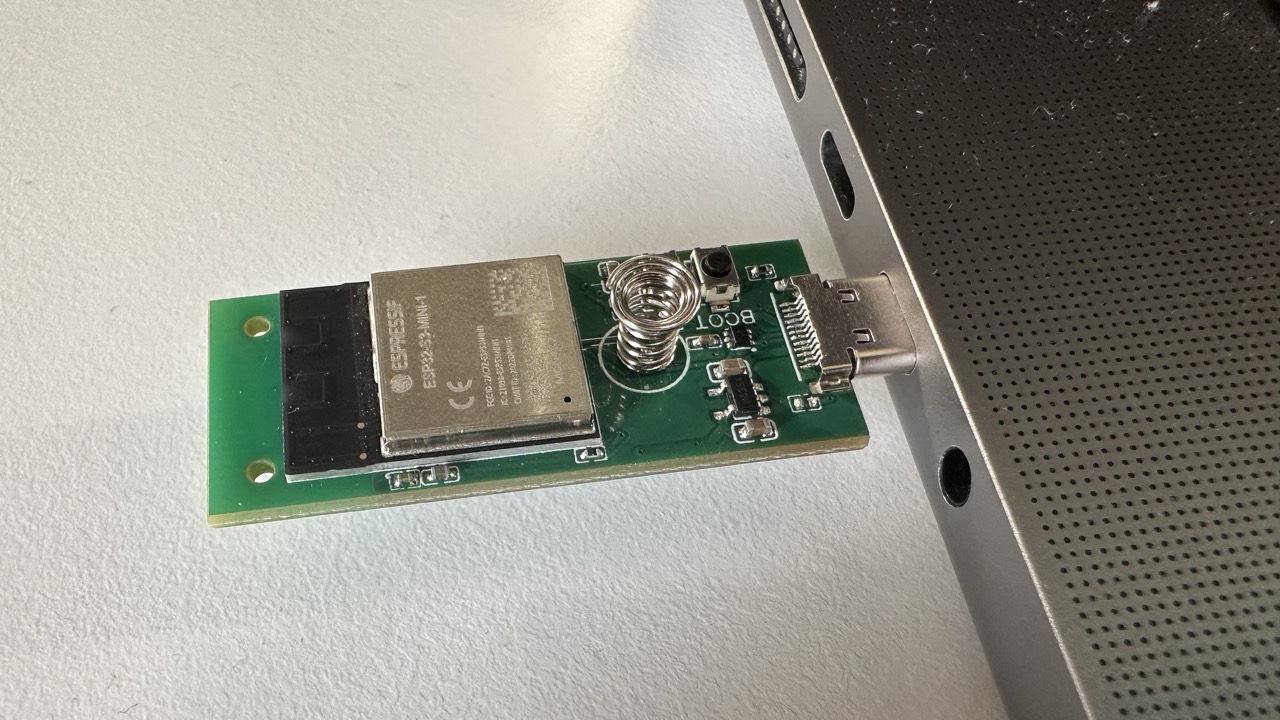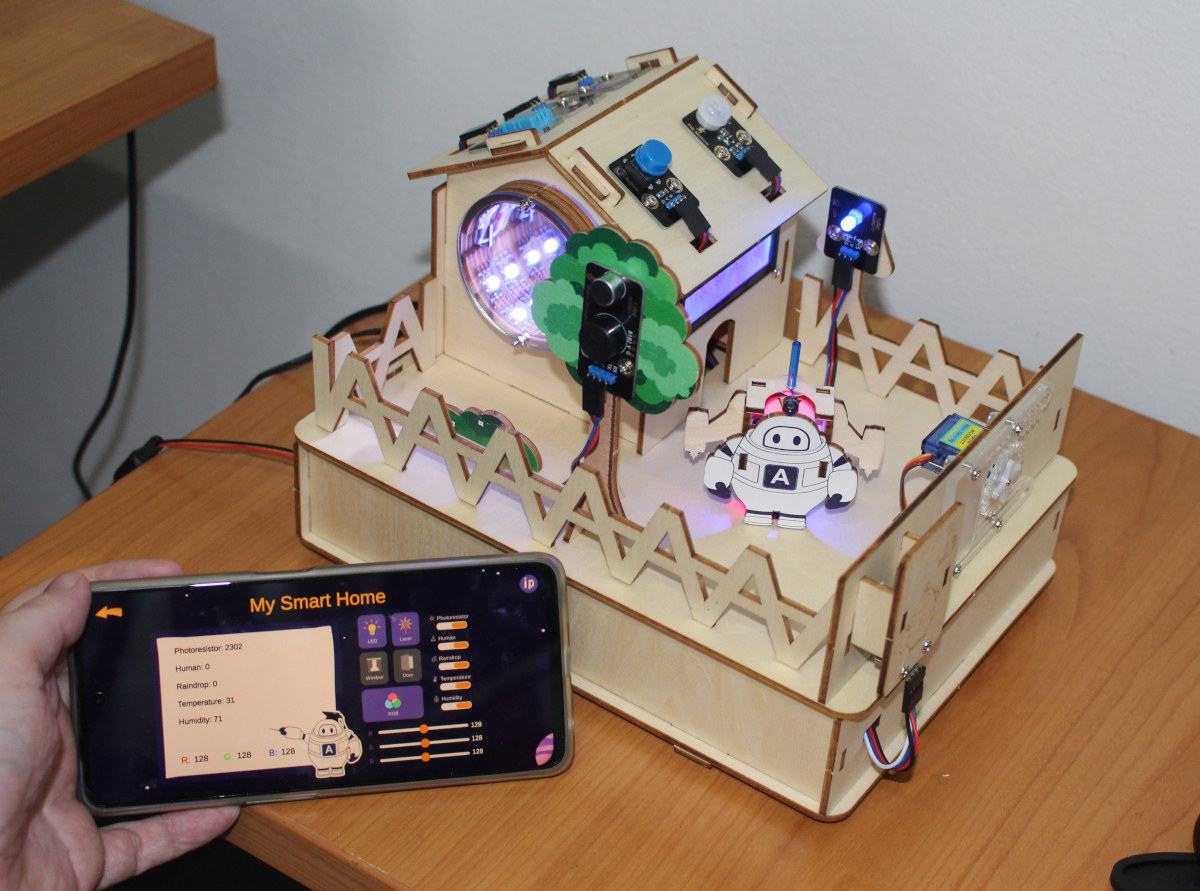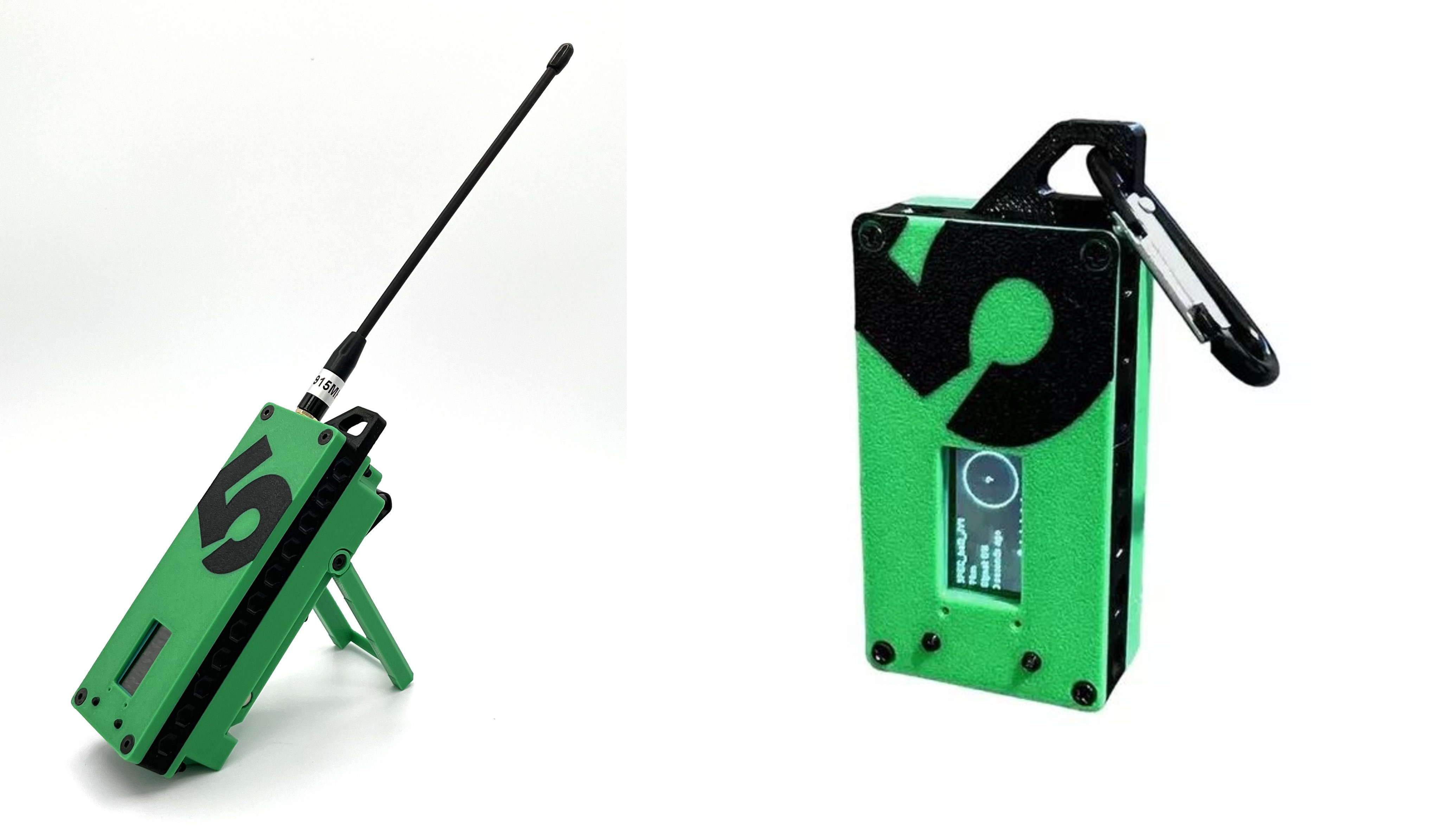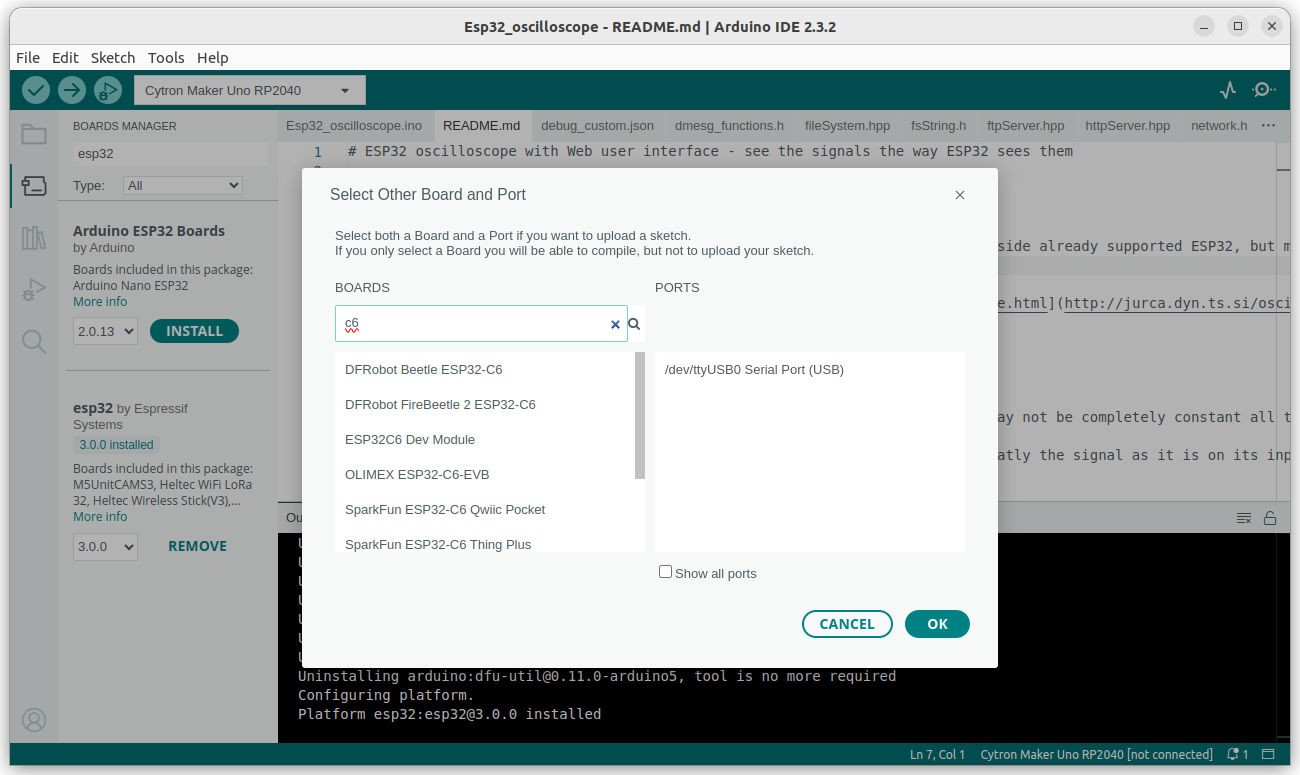FluidNC “TMC2209 Pen/Laser CNC Controller” is an ESP32-based 2-axis CNC controller that runs FluidNC open-source firmware and takes up to two TMC2209 stepper drivers to drive pen plotters and laser engravers ESP32 wireless modules have been used in a range of 3D printer and CNC controllers for years with boards such as Grbl_ESP32 CNC breakout board, Phi MainBoard 5LC 3D printer controller, and the Makerbase MKS DLC32 board we found in TwoTrees TS2 laser engraver and TTC 450 CNC router running MKS-DLC32-FIRMWARE open-source firmware. The FluidNC TMC2209 Pen/Laser CNC Controller offers yet another option and a different open-source FluidNC firmware that is an evolution of the firmware for the aforementioned Grbl_ESP32 that also happens to work on the MKS DLC32 board… FluidNC “TMC2209 Pen/Laser CNC Controller” specifications: Wireless module – Espressif Systems ESP32-WROOM-32E ESP32 dual-core microcontroller 4MB flash 2.4 GHz WiFi and Bluetooth LE connectivity, built-in PCB antenna Storage – MicroSD […]
Serial Bus Servo Driver HAT (A) can drive up to 253 servos simultaneously
Waveshare has recently introduced the Serial Bus Servo Driver HAT (A) ESP32-powered servo motor controller for the Raspberry Pi designed to drive up to 253 serial servos simultaneously. The servos can be controlled via UART or USB through the Pi SBC or used as a standalone controller for a robotics project. The board has a wide input voltage range of 9 to 25 volts and features an onboard XT60 connector, a screw terminal, and a DC barrel jack any of which can be used as power input. Besides that, the board features an RS485 port a TTL Servo header, and a UART control switch for convenience. Previously we have written about the Suptronics X200 HAT multifunction expansion board for the Pi with servo support, as well as the ELECFREAKS Wukong 2040 which can also be used to drive servos. Waveshare Serial Bus Servo Driver HAT specifications CPU – Espressif ESP32-WROOM-32 dual-core […]
Apple’s Embedded Swift programming language supports ESP32-C6, Raspberry Pi RP2040, STM32F7, nRF52840 microcontrollers
Apple has released a beta version of Embedded Swift that notably works with Espressif ESP32-C6 wireless RISC-V microcontroller, and the company also built a Matter sample based on ESP-IDF and ESP-Matter SDKs. Embedded Swift is not limited to the ESP32-C6 and supports other microcontrollers from STMicro, Raspberry Pi, Nordic Semi, etc… Apple Swift programming language is mostly designed for mobile app development, but we’ve also seen it being used on Mad Machine’s SwiftIO board powered by a 600 MHz NXP i.MX RT1052 Arm Cortex-M7 crossover processor and the tiny SwiftIO Micro launched a few years later. The company has now decided to create a subset of the Swift programming language better suited to microcontrollers simply called Embedded Swift that’s currently working on STMicro STM32F746, Raspberry Pi Pico, nRF52840, and ESP32-C6. The “Go small with Embedded Swift” presentation at WWDC 2024 shows how to get started with Embedded Swift using Espressif […]
The RPGA Feather dev board pairs RP2040 chip with a Lattice iCE40 FPGA for sensor fusion projects
Oak Development Technologies’ RPGA Feather board integrates the Raspberry Pi RP2040 microcontroller with the iCE5LP4K FPGA from Lattice Semiconductor into a compact development board in the Adafruit Feather form factor. The iCE5LP4K FPGA is an ultra-low-power chip in the iCE40 Ultra product family designed for mobile applications such as smartphones, tablets, and handhelds, while the Raspberry Pi RP2040 microcontroller makes it much easier to program the FPGA using CircuitPython. We have seen Oak Development Technologies’ earlier forays into FPGA Feather-compatible products such as the IcyBlue board (also based on iCE5LP4K FPGA) and the Lattice FeatherWing. RPGA Feather specifications: MCU – Raspberry Pi RP2040 dual-core Cortex-M0+ microcontroller @ 133 MHz with 264KB SRAM FPGA – Lattice Semiconductor iCE5LP4K FPGA Logic Cells – 3,520 logic cells Memory 80 Kbits of embedded Block RAM (EBR) Distributed RAM: 640 bits 2x hardware I2C blocks and 2x hardware SPI blocks 26 I/Os for customized interfaces […]
ThingPulse Pendrive S3 ESP32-S3 USB stick comes with 128MB of storage and a capacitive spring button
The Pendrive S3 is an ESP32-S3 development board in a USB stick enclosure with 128MB of flash memory and an unusual capacitive touch button. The Espressif ESP32-S3-MINI-1 module on the board integrates an Xtensa dual-core 32-bit LX7 microprocessor with support for 2.4GHz Wi-Fi and Bluetooth 5 (low-energy). The device features a capacitive touch button that can be used to trigger actions by touching the enclosure. The capacitive button isn’t visible on the exterior of the device, which helps the device maintain a low profile. You may be interested in Dani Eichhorn’s article on how he came up with the idea of using a spring for the capacitive touch button. The Pendrive S3 stick can be used as a BadUSB device for hacking and penetration testing purposes. With the aid of SuperWiFiDuck, it can perform keystroke injection attacks. All scripts can be managed and controlled wirelessly via a web interface, and […]
ACEBOTT QE007 review – An ESP32-based Smart Home STEAM education kit for 8+ years old kids
ACEBOTT QE007 ESP32-based Smart Home Starter Kit is a STEAM (Science, Technology, Engineering, Arts, and Maths) education platform that involves story reading, assembling a wooden house with various electronics sensors wired to an ESP32 board, and learning about electronics concepts (such as voltage and current) and coding with the Arduino IDE through an 18 lesson course. ACEBOTT has various STEAM education kits, and the company sent us the QE007 “IoT Smart Home Starter Kit” for evaluation and review. So I’ll go through an unboxing, report my experience with the assembly process, and the Arduino tutorials by going through some of the eighteen lessons. ACEBOTT QE007 unboxing The kit comes in a nice-looking retail that reads “ACEBOTT Explorer Series QE007” and “ACEBOTT IOT Smart Home Started Kit”. The front of the package also highlights its a STEAM education kit designed for 8+ years old kids. The bottom side gives the backstory […]
The S5 Trekker is a compact Meshtastic communication device for hikers and preppers
The S5 Trekker Bravo and the S5 Trekker Mini are two Meshtastic-enabled radios designed by SpecFive LLC, a team of engineers based in the United States. Both devices are based on the Heltec Wireless Tracker from Heltec Automation. The Wireless Tracker integrates Espressif’s ESP32-S3 system-on-a-chip, a 160 x 80 TFT LCD, a SemTech SX1262 LoRa chip, and a Unicore UC6580 GNSS chip. The MiniTrekker is much lighter than the Trekker Bravo and features a built-in attachment hook for connecting it with other gear. Both radios are built to be durable enough to resist the rigors of outdoor exploration. They come pre-flashed with the open-source Meshtastic software and are ready to be used out of the box. The S5 Trekkers are intended to be used when hiking, trekking, and partaking in other outdoor activities that take one away off the well-trodden path. It is also useful for setting up a reliable […]
Espressif releases Arduino ESP32 Core 3.0.0, but PlatformIO support is in doubt
We previously noted the ESP32 Arduino Core 3.0.0 Alpha release added support for ESP32-C6 and ESP32-H2 among other changes. The good news is that Arduino ESP32 Core 3.0.0 is now considered stable, and was released a few days ago based on the ESP-IDF 5.1.4 framework. Users of the Arduino IDE can use it straight away, but as we’ll discuss in more detail below it’s unclear whether PlatformIO will be (officially) supported. There have been many changes since we wrote about the Alpha2 release in November 2023 with 327 commits from 96 contributors. Some of the most recent changes (compared to RC3) include: Updated ESPDuino with extra options (CPU freq and Partition) Add support for WeAct Studio ESP32C3 Attach ETH events at the correct place Enable the possibility to use SPI ETH with only 4 wires Fix ETH.end() Fix ETH.stop() with IDF SPI Nano ESP32: delete programmer.default entry (on main) due […]


